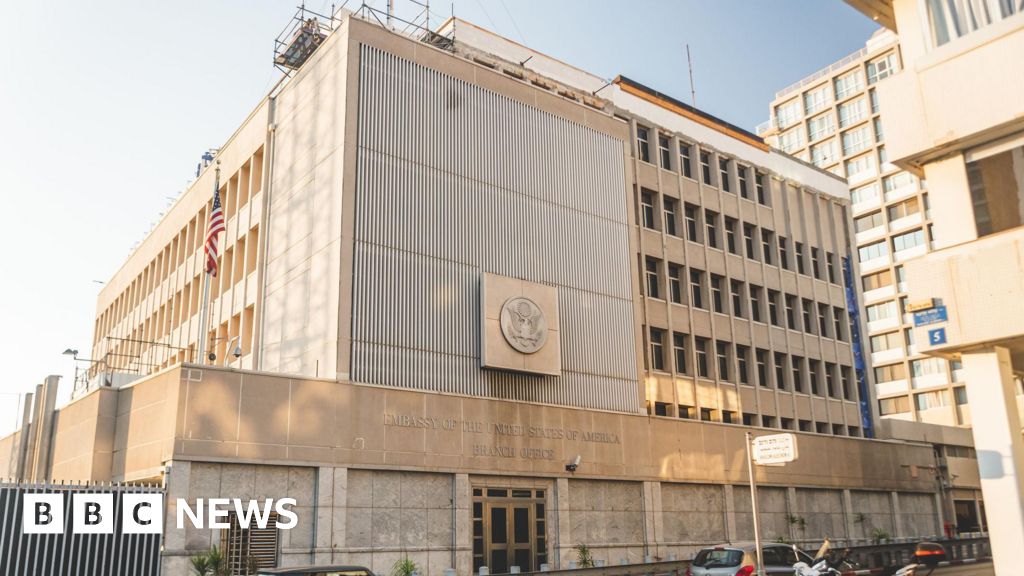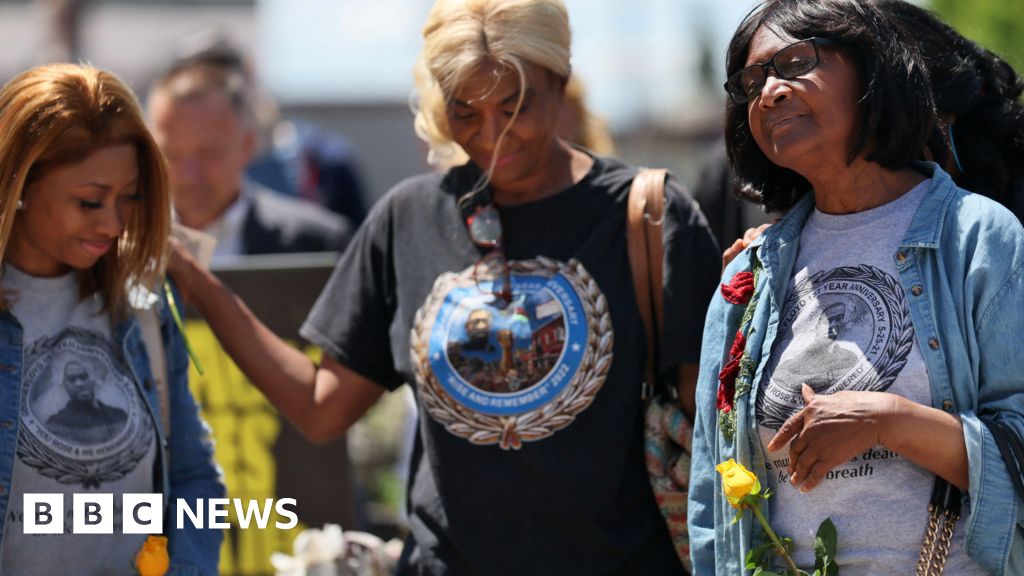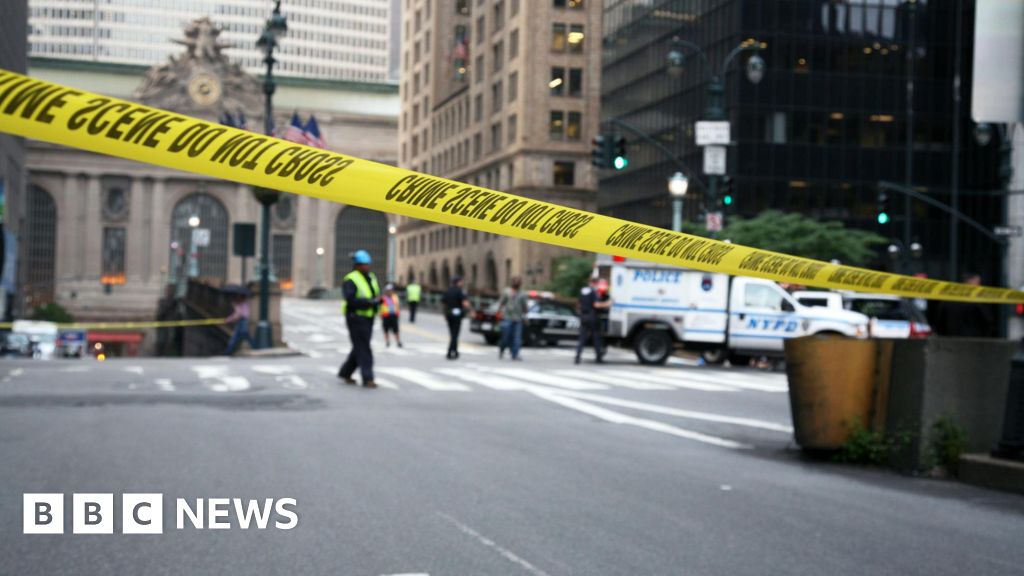ARTICLE AD BOX
Watch: Zelensky faces political deadlock in Washington
By Anthony Zurcher
North America correspondent at the White House
Volodymyr Zelensky's third visit to Washington on Tuesday was tinged in desperation. It was a last-ditch effort to win new military aid from Congress before the currently approved amount runs dry.
The Ukrainian president is desperate because his nation's fate may hang in the balance. His American counterpart, Joe Biden, is desperate because he views the Ukrainian war as a pivotal battleground in a world conflict between democracies and autocratic regimes.
At the end of the day, however, there was little to show for their efforts.
When Mr Zelensky came to Washington last year, he was cheered on by a joint session of Congress and treated to a red-carpet reception at the White House. Shortly after, the US approved a $50bn aid package that helped fuel Ukraine's efforts to regain territory ceded at the outset of the Russian invasion.
This time around was very different. He had a session with US senators behind closed doors. He sat down with Republican Speaker of the House Mike Johnson, who did not even make a public appearance with the Ukrainian president.
And his welcome at the White House was decidedly low-key, with minimal pomp and ceremony.
It wasn't exactly a slap on the back and a half-hearted "good luck", but it might as well have been. Mr Zelensky may have travelled halfway around the world, but the odds that Ukraine gets more military support from the US haven't improved.
The atmospherics of his visit matched the mood in Washington, where additional funding for Ukraine is tied up in a domestic fight over US immigration policy.
While Democrats have been willing to spend more money on border security as part of a $110bn package of military aid to Ukraine, Israel and Taiwan, Republicans want fundamental reform to the way undocumented migrants claiming political asylum are processed by the US government.
After meeting with Mr Zelensky on Tuesday morning, Republican senators were clear that, while they sympathised with Ukraine's plight, they view the situation at the US border as a more pressing national security concern.
"I admire him, but he didn't change my mind at all about what we need to do," Republican Senator Lindsey Graham of South Carolina, long considered a foreign-policy hawk, told the BBC. "I know what needs to happen to get a deal. I want to secure our border."
Mr Biden is either going to have to convince Republicans to back down from this immigration fight - or make concessions that Democrats on his left will find extremely unpalatable.
Image source, Getty Images
Image caption,Ukraine's president spent much of Tuesday at the US Capitol - but there was little sign of a breakthrough
At the moment, at least, Republicans, whose voters have been souring on continued Ukraine support for months, seem more willing to let Ukraine aid lapse in order to achieve a victory their base will celebrate. And if it fractures the Democratic coalition even more in the process, all the better for electoral hopes next year.
Immigration reform may not be the only obstacle to further Ukraine aid, either. Mr Johnson, in his remarks after meeting Mr Zelensky, said that more military support is contingent on a "clear strategy" and appropriate congressional oversight.
"They've not explained to us what the endgame is," he said.
That raises the spectre that even if the Senate reaches a deal, there's no guarantee it doesn't fall apart in the narrowly divided House of Representatives.
During a joint press conference at the end of a long day of meetings, both Mr Zelensky and Mr Biden tried to put an optimistic spin on what seems to be a fruitless effort. The US president said he was hopeful that a resolution would be found, but he could make no promises.
His Ukrainian counterpart said he told the Americans what he wanted to do and that the response was positive.
He may have been the only one who felt that way, however.
At several points during his visit, Mr Zelensky - speaking to US senators in English - had to ask for an explanation of words whose meaning he didn't understand, according to Lisa Desjardins of American broadcaster PBS.
One of those words was stalemate.
It's a term the Ukrainian president may learn the hard way. In this time of divided American government, stalemate is the nation's default political condition.

 1 year ago
38
1 year ago
38








 English (US) ·
English (US) ·